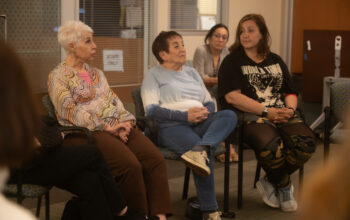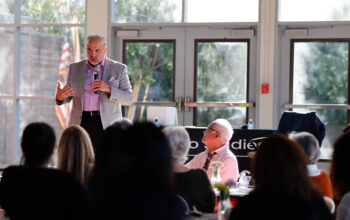Students celebrated Women’s History Month by tracing the roots of the ‘Me Too’ movement back to Anita Hill in 1991.
The documentary, Anita: Speak Truth to Power, invoked conversation on Anita Hill’s integral role in the feminist movement in the Great Hall. The event was sponsored by Women’s History professor Sheryl Nomelli, ASO and Student Engagement Coordinator and Counselor Lara Conrady Wong and B.R.A.V.E. (Brahmas Responding with Actions and Voices through Empowerment).
The documentary and following panel made up of professors from the History, Sociology and Philosophy Departments explored what happened to a black, female professor, who accused Justice Clarence Thomas of sexual misconduct.
Sociology Professor Julio Tsuha said that of the main intersectionalities discussed in the documentary, less necessary attention was paid to the class difference between Clarence Thomas and Anita Hill, given their respective employer-employee statuses.
Associate Professor of History Christopher Strickland said Anita’s identity was relatively complex compared to what the public was used to at the time.
“No one is a monolith. Anita is a woman, a black woman, a professor,” Strickland said.
Kevin Barcinas, a student in attendance, said he appreciated the extra layer of Hill’s story because he identifies at an intersection of minority identity trying to preserve his job at a current workplace.
“Why am I supposed to solve a problem others create?” Barcinas asked.
Tsuha said, fortunately for disenfranchised workers in the area, Los Angeles has the strongest labor movement in the country and suggested ways Barcinas could take action.
“I gained a lot more than I expected to because obviously this month we want to respect women so we think about how to help them better, but I found ways to help myself,” Barcinas said. “That’s why feminism has got me. This can help me too, it’s an important cause.”
“I came out to this because I identify as a feminist and that’s the whole reason I took this women’s history class,” Barcinas said.
Strickland related Anita to a Nina Simone saying that freedom means to be fearless.



